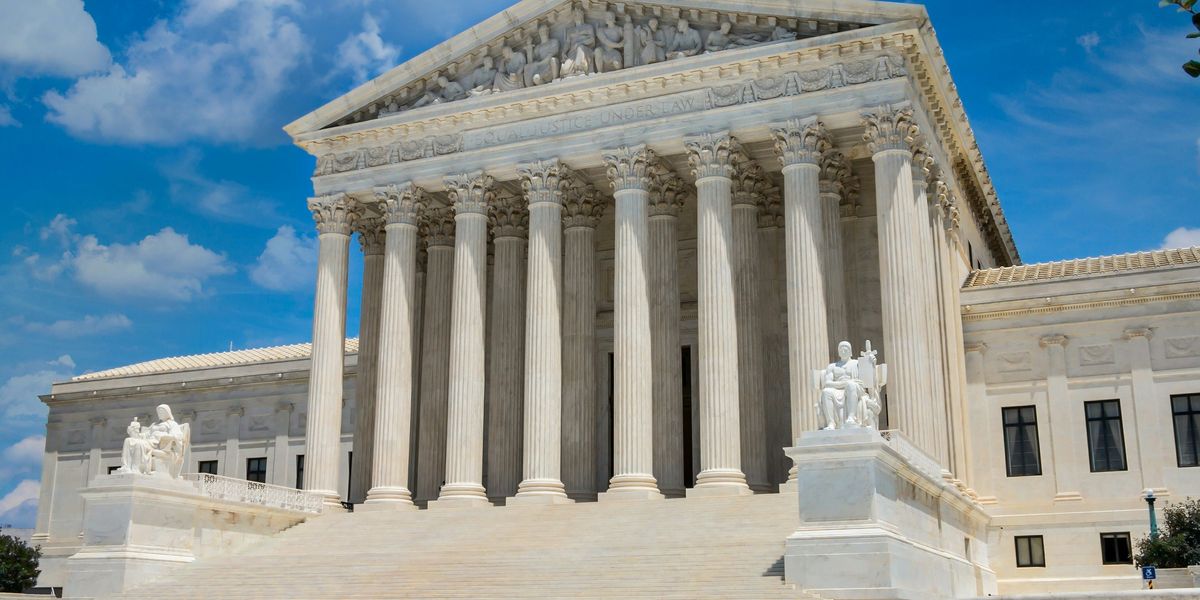chemical regulation
Trump’s EPA pick faces Senate grilling over climate rollback plans
Lee Zeldin, a Trump ally with limited environmental experience, is poised to lead the Environmental Protection Agency, where he’s expected to champion aggressive deregulation of climate protections.
In short:
- Former Congressman Lee Zeldin of New York, nominated to lead the EPA, faces scrutiny over his qualifications and alignment with Trump’s plans to weaken climate regulations.
- Despite touting support for clean air and water, Zeldin has a record of opposing key environmental legislation, including the Inflation Reduction Act and air and water protections.
- Critics, including Senator Edward Markey, question whether Zeldin prioritizes safeguarding public health and the environment over political loyalty to Trump.
Key quote:
“My questions go to what the EPA priorities would be under his leadership.”
— Senator Edward J. Markey, Massachusetts Democrat
Why this matters:
For Trump, Zeldin seems to be the perfect ally to turbocharge the rollback of climate rules and possibly even shrink the EPA’s scope altogether. If confirmed, Zeldin’s tenure could mark a pivotal moment for the EPA — one where public health and climate priorities are left hanging in the balance. Will Zeldin’s loyalty lie with the environment or his political benefactor?
Read more: Donald Trump wins US presidency. What that could mean for the environment
Agreement reached to remove uranium mine waste from Navajo land
Federal and tribal officials approved a plan to transport one million cubic yards of uranium waste from the Quivira mine to an off-site landfill, aiming to mitigate health and environmental risks after decades of Navajo community advocacy.
In short:
- The U.S. EPA’s plan involves trucking uranium-contaminated waste to the Red Rocks Landfill, six miles east of Thoreau, New Mexico, over several years.
- Navajo leaders and environmental advocates see this as a significant step, though some residents in Thoreau have voiced safety concerns.
- The Navajo Nation continues to grapple with long-term health effects from uranium mining, including higher rates of cancer and kidney disease.
Key quote:
“It’s not everything the three affected communities would wish for, but it’s action in the right direction now, rather than in the future.”
— Buu Nygren, Navajo Nation president
Why this matters:
Uranium mining left lasting scars on the Navajo Nation, contributing to toxic exposures and public health crises. Removing the waste offers a chance to address some of the harm, though logistical and community concerns about disposal remain.
Related EHN coverage: Years after mining stops, uranium's legacy lingers on Native land
Fire retardant blankets Los Angeles neighborhoods as crews battle wildfires
Aerial tankers have coated Los Angeles-area homes, vehicles and landscapes in pink fire retardant to slow wildfire spread, though questions about environmental impact persist.
In short:
- Firefighters are using Phos-Chek, a chemical fire retardant, to control wildfires across southern California.
- The product, consisting mostly of water, fertilizer salts and coloring agents, is sprayed to slow fires by coating vegetation and depriving flames of oxygen.
- Environmental concerns have led to lawsuits, with critics citing potential harm to aquatic life and wildlife habitats.
Key quote:
“The longer the retardant dries, the more difficult it is to remove completely.”
— Perimeter, the maker of Phos-Chek
Why this matters:
The increasing use of fire retardants raises concerns about balancing wildfire containment with environmental protection. As wildfires intensify due to climate change, communities and policymakers must consider potential trade-offs between safety and ecological impacts.
Read more: We’re dumping loads of retardant chemicals to fight wildfires. What does it mean for wildlife?
Biden’s EPA leader exits as environmental justice efforts face setbacks
The resignation of Michael S. Regan, the first Black EPA chief, marks a turning point for the agency’s focus on protecting vulnerable communities, as legal and political challenges threaten its regulatory tools.
In short:
- Michael S. Regan left his role as EPA administrator on Dec. 31, after prioritizing environmental justice initiatives aimed at Black and Brown communities impacted by pollution and climate change.
- The EPA’s use of Title XI of the Civil Rights Act to combat environmental discrimination stalled due to lawsuits, with some investigations dropped following legal pressure from Republican-led states.
- Donald Trump’s incoming administration plans to roll back regulatory powers, with Lee Zeldin nominated to lead the EPA under a deregulatory agenda.
Key quote:
The EPA took environmental justice and “placed it at the center of our decision-making.’’
— former EPA administrator Michael S. Regan, writing in the resignation letter he sent to agency employees
Why it matters:
Communities of color often live closest to polluting industries and face higher health risks, making environmental regulations a critical line of defense. Without robust enforcement, efforts to address pollution-related inequities may falter, worsening disparities.
Related:
Senate GOP gears up to dismantle Biden’s regulations
Senate Republicans, aligning with incoming President Trump, plan to swiftly overturn key Biden administration regulations using the Congressional Review Act within a 60-day window.
In short:
- The GOP aims to target more than 60 Biden-era rules, including on ozone-depleting substances and a phase-down of hydrofluorocarbons.
- Resolutions under the Congressional Review Act bypass the filibuster but must be passed quickly after Congress convenes.
- The effort coincides with preparations to confirm Trump’s Cabinet and manage Biden’s last-minute executive actions.
Key quote:
“As you know, there’s a 60-day time [limit] on the Congressional Review Act. We’re very confident that President Trump will want to sign every one that we can pass and we can get through the House and the Senate.”
— John Barrasso, Senate Republican whip
Why this matters:
The Congressional Review Act allows a new Congress to nullify late-term regulations, making this period pivotal for reversing policies on climate, consumer protections and financial transparency. The process could shape federal regulations for years and reflect sharp partisan divides on regulatory control.
Read more: Republicans weigh clean energy incentives as political winds shift
British Columbia’s war on aspen is fueling wildfires
For decades, B.C.’s forestry industry has used glyphosate herbicides to kill aspen and other deciduous trees, prioritizing conifers for profit—a practice critics say intensifies wildfire risks and depletes ecosystems.
In short:
- Glyphosate spraying in B.C. forests targets aspen and other plants to prioritize conifer plantations, but this practice undermines biodiversity and wildlife habitats.
- Aspen, with its moisture-retaining properties, serves as a natural firebreak, reducing wildfire intensity, while conifers contribute to drier, more flammable landscapes.
- Critics, including ecologists, argue glyphosate spraying exacerbates fire risks, disrupts forest ecosystems, and harms species that rely on aspen for food and shelter.
Key quote:
“We’ve got to stop cutting down aspen, we’ve got to stop spraying aspen. Nature can heal itself, but we’ve got to get out of the way.”
— James Steidle, founder of Stop the Spray B.C.
Why this matters:
With wildfires becoming more severe due to climate change, preserving aspen forests could mitigate fire risks and promote healthier ecosystems. The B.C. NDP government pledged to phase out herbicide use in forestry, but critics say progress has been sluggish. Meanwhile, communities bear the brunt of bigger, hotter wildfires while biodiversity takes a backseat to profit. Read more: Glyphosate, explained.
NY communities clash over controversial biochar plant
In Moreau, New York, a proposed biochar facility promised to turn sewage sludge into climate-friendly carbon storage, but local residents, haunted by industrial pollution, pushed back hard.
Abby Rabinowitz and Amanda Simson report for Grist and the Times-Union.
In short:
- A proposed biochar plant in Moreau aimed to process 75,000 tons of sewage sludge annually, addressing waste disposal and carbon sequestration.
- Residents, citing concerns over toxic PFAS chemicals, air pollution and the area's history of industrial contamination, rallied against the project.
- Following fierce community activism and over 500 public comments, New York state denied the plant’s permits, citing untested technology and environmental risks.
Key quote:
“Residents were told, ‘This is a done deal.’ We responded, ‘This is not done until we say it’s done.’”
— Gina LeClair, founder of Not Moreau
Why this matters:
The biochar plan sounded noble on paper: process 75,000 tons of sludge a year and sequester carbon in the fight against climate change. But residents worried about the devil in the details, especially untested technology and the potential release of PFAS. As more than 500 public comments poured in, community activism ultimately turned the tide. Read more: “Organic” fertilizers have an inorganic problem.



















